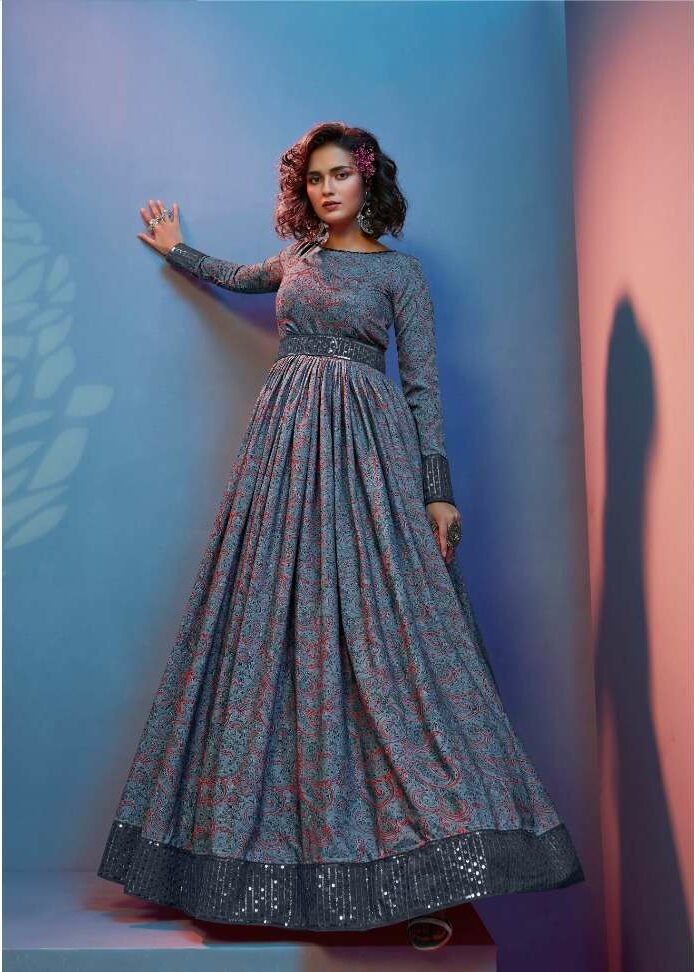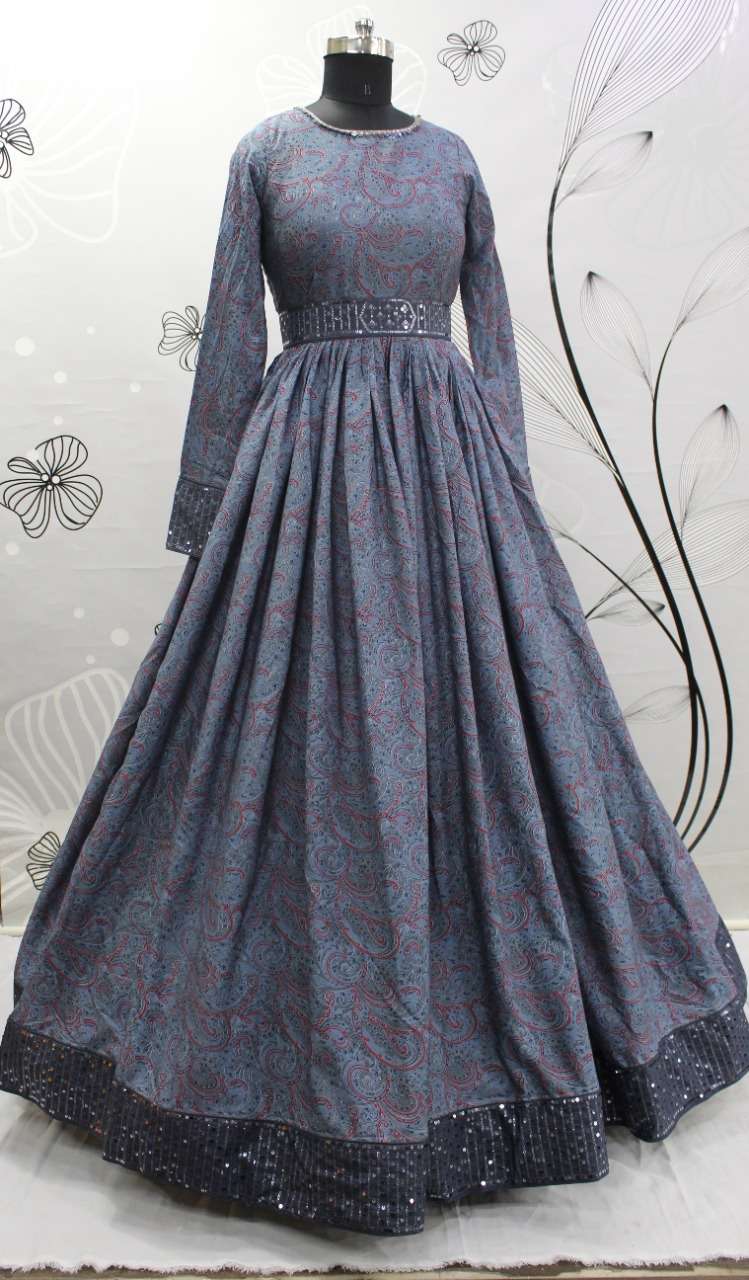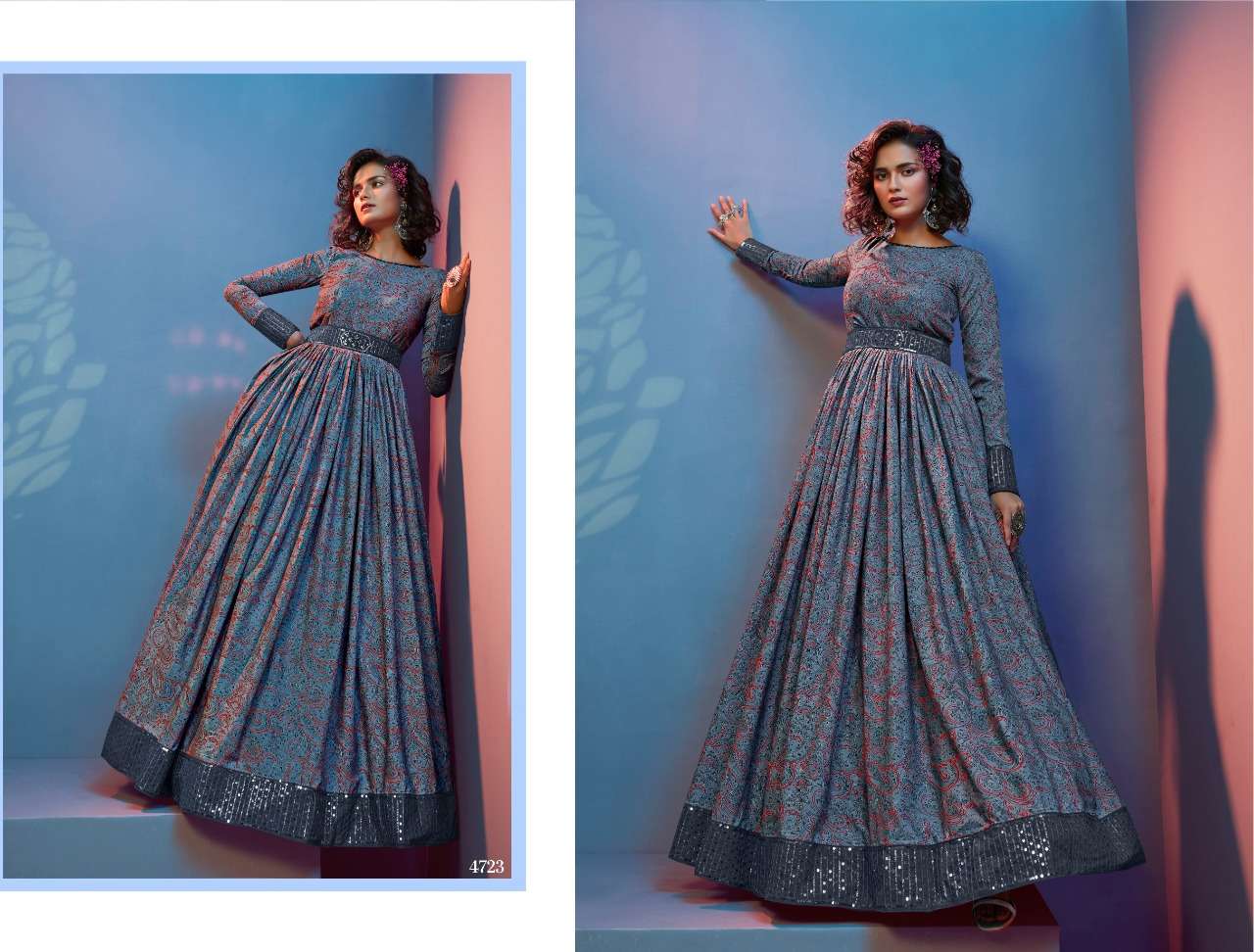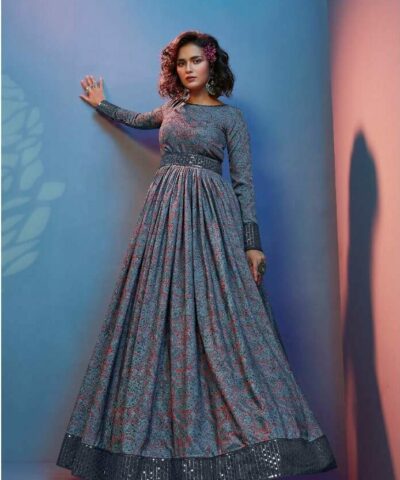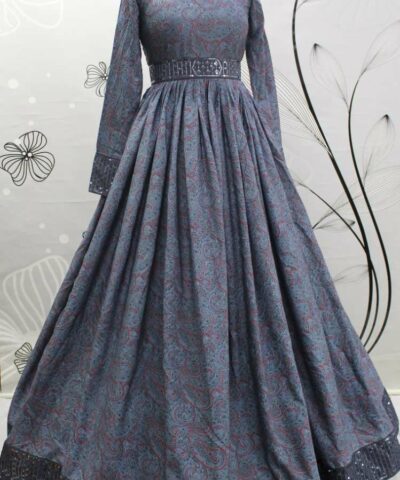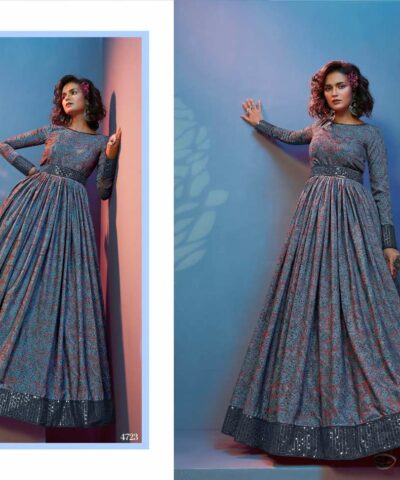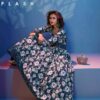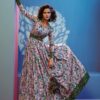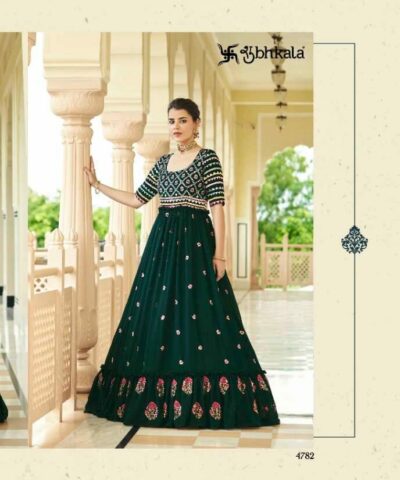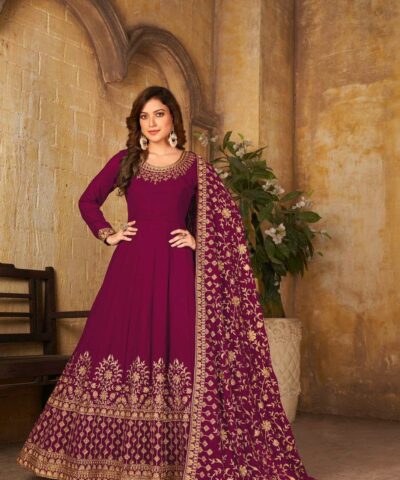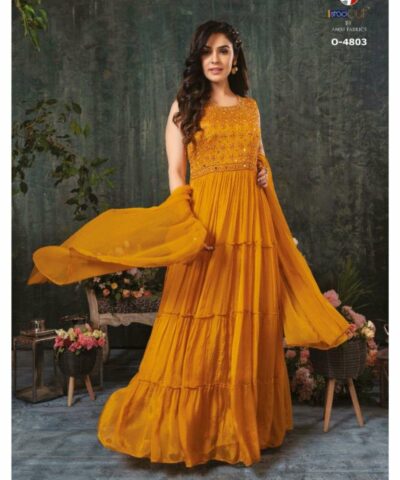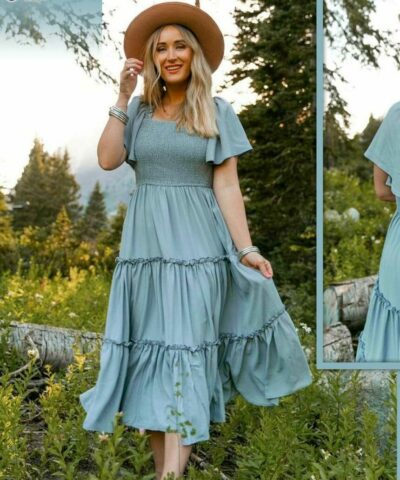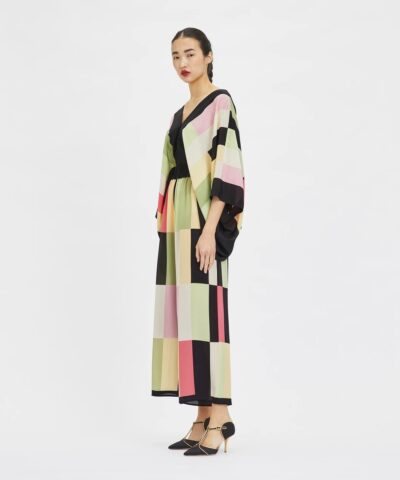Shubhkala 4723 Flory Vol-19 Grey Semi Stitched Natural Crepe Gowns
₹ 1,300 + G.S.T Extra
| Weight | 1 kg |
|---|---|
| FABRIC | NATURAL CREPE |
| COLOR | Grey |
| SIZE | SEMI STICHED |
| BRAND | SHUBHKALA |
| GENDER | FEMALE |
| PUBLISHED ON | FEB 22, 2023 |
Shubhkala 4723 Flory Vol-19 Grey Semi Stitched Natural Crepe Gowns
Gowns feature in both societal and personal histories the way few other single items do – and they often transcend the limits of their fabric and the bodies who wear them to find permanent places in the public imagination.
A short history of Gowns
Gowns have been in the thick of women’s fashion from time immemorial. In the past, gowns were the prerogative of the nobility and they proclaimed the wealth, family status and social standing of the wearer. It became aspirational for women to wear the best of gowns; each strove to dress herself better than the others in the courts of the kings across the world. Elaborately decorated gowns made of the most costly fabric with beautiful embroidery, embellishments, and trimmings became the norm for every day, not just special occasions.
For a long time, the gowns seen in European courts featured voluminous skirts with many layers of petticoats and hoops inside to keep the shape intact, long trains, tight bodices with tightly laced corsets, draped outer layers, high and low necklines, and elaborate sleeves. Expensive fabrics like silk brocade and taffeta were used to make the gowns.
During the 18th century a high waisted style called Empire line with gathered skirts was popular with very low necklines and short sleeves in thin flowy fabrics. After the French revolution in 1780 a fashion for naturalism lead to gowns being made in simpler silhouettes, more attuned to the natural shape of the female figure.
During the 19th century, the old favorites with full skirts came back. In the 1870s Bustle was very popular, attached to the back of the gowns.
Formal evening gowns are long dresses suitable for wearing on formal/special occasions and are usually made of expensive fabrics, with beautiful embellishments and meant to make the wearer stand out among the crowd.
Morning gowns are casual long dresses worn during the day.
Ball Gown is the most common silhouette in gowns – with a fitted bodice, tight waist and a very full, floor length skirt, with or without a train.
In this type of gown the skirt is tight fitted at the hips and thighs but flares out from the knees.This is achieved by cutting panels which flares or by attaching a different fabric from the knees. The gown is also known as a trumpet gown.
In this style the gown has a fitted bodice and the skirt flares gently from the waist to the skirt hem, creating the shape of a capital letter A. This is usually achieved with princess line panels so it is also called princess line gown
A full skirt is gathered at the waist but is not as full/puffy as the bouffant skirt gown.
A halter neck gown will have a band encircling the neckline connecting to the sleeveless bodice leaving the shoulders and part of the back bare.
To Buy WHOLESALE CATALOGUES Of Pakistani Suits, Salwar Kameez, Kurtis, Sarees, Lehengas, Gowns, Palazzo | Pants | Leggings, Mens Wear. Night wear | Lounge Wear, Dupattas, Hijab, Burqa Please Click This Link.

